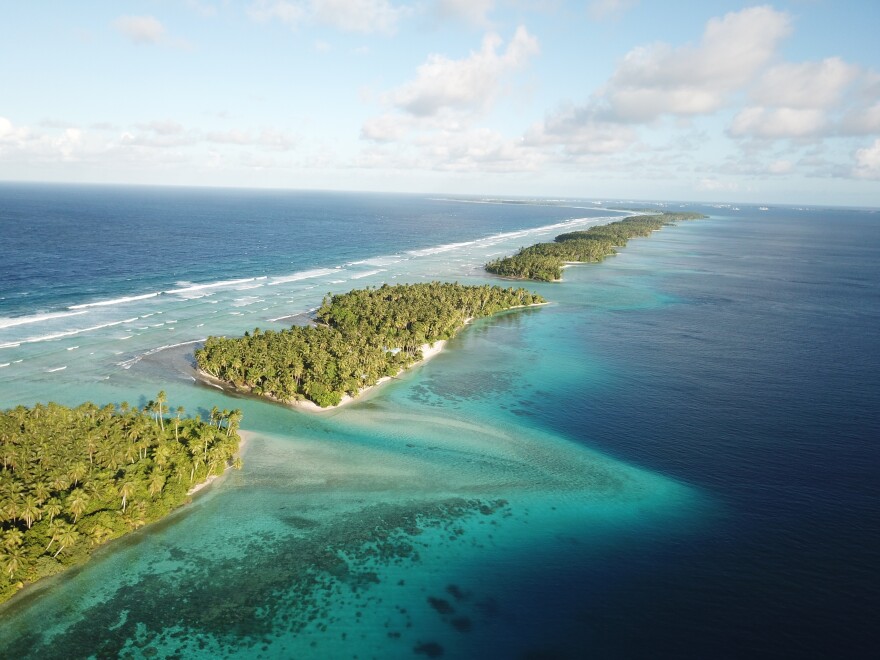The U.S. Department of Interior announced Tuesday that it will provide more than $5.2 million to support programs and projects in the Republic of the Marshall Islands.

An additional $2 million in Technical Assistance Program funding will aid in monitoring the groundwater surrounding the Runit Dome in Enewetak Atoll.
The concrete dome, built in the Marshall Islands decades ago by the U.S. government, is a relic of America's nuclear past.
In the 1940s and 50s, the U.S. conducted 67 nuclear tests in Bikini and Enewetak Atolls. The U.S. used the saucer-shaped dome to dump nuclear waste, but concerns by Marshallese residents were raised for years about the dome's condition.
The funding will go to the U.S. Department of Energy to conduct periodic radiochemical analysis of the area surrounding Runit Dome as required by the 2011 Insular Areas Act.
Phillip Muller, a Honolulu-based chief negotiator for the Marshall Islands, said the issue was unknown, and it took the U. S. to conduct a study to "confirm our suspicions."
"In the Marshall Islands, the soil is poor, so when the tide comes in and out, there is no doubt that chemicals and other elements are coming in and out of the dome," Muller said. "I'm glad there's some money to continue to monitor it."
The Marshall Islands is one of three Pacific nations that share a treaty with the U.S. called the Compacts of Free Association.
The agreement is that the U.S. provides economic assistance to the island countries in exchange for the U.S. military to have strategic denial rights over their land, waters, and airspace. The COFA nations are continuing as the September deadline nears.
The funding is separate from the COFA package.
TAP funding will go to:
- RMI National government for Four Atoll Healthcare program (over $2.2 million)
- RMI Love Animals for the Majuro SNIP project to manage the feral dog population of Majuro ($200,000)
- U.S. Bureau of Reclamation of the Majuro Atoll Hydraulic Modeling Refinement Support project ($200,000)
- Aur Atoll Local Government for the Community Solar Energy Enhancement project ($150,000)
- Ailinglaplap Atoll Local Government for the Ailinglaplap Water Catchment Project (more than $137,000)
- EbonAtoll Local Government for the Ebon Teach Housing project (more than $111,000)
- Wotho Atoll Local Government for the Wotho Atoll Solar project ($96,000)
- RMI Environmental Protection Authority for the Water Quality Monitoring Laboratory program (more than $82,000)





